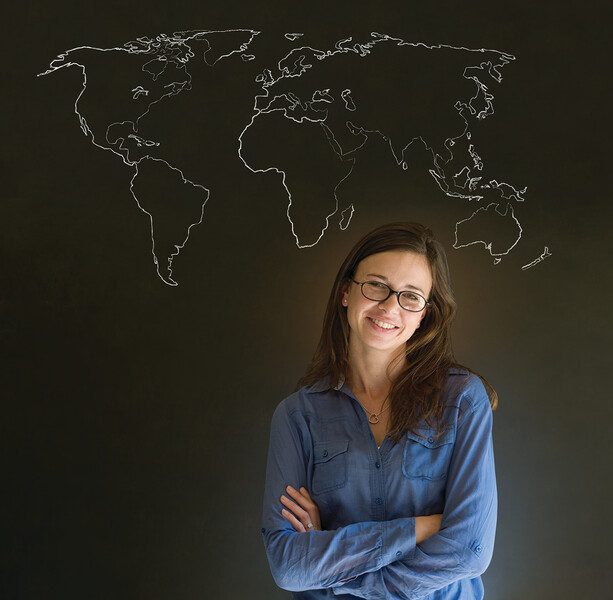Online Only
All Things Global Learning
Education Week's Global Learning blog publishes several posts each month about preparing global-ready graduates. In recent months, posts have addressed such topics as world language instruction, lessons for civics and democracy, international strategies for developing 21st century skills, and teaching feminism to end global violence. Guest bloggers include educators, students, policy experts, and program directors at such organizations as Facing History and Ourselves.
Research Alert
The Global Knowledge Gap
How much do recent U.S. high school graduates understand about U.S. policies, world problems, and basic geography? A survey of 18- to 26-year-olds by the Council on Foreign Relations and National Geographic revealed good and bad news.
The survey of 1,203 young Americans who attend or recently attended a U.S. college showed that a majority believe it's important to be informed about global issues. Some 81 percent of respondents said knowledge of current world events is either extremely or very important. Sixty-three percent responded similarly about international relations, 56 percent about foreign (non-U.S.) cultures, and 51 percent about geography.
Evidence of what the respondents actually know is less promising: The report notes that there are "significant gaps between what young people understand about today's world and what they need to know." For instance, on a map of the Middle East, less than half could identify Iraq (49 percent), Iran (45 percent), or Israel (31 percent). Forty-nine percent knew that Mandarin Chinese is the language spoken by the most people in the world (44 percent responded "English"). On a true-false question, only 34 percent correctly said that more Mexicans have returned to Mexico from the United States than have arrived here over the last five years. Respondents were more knowledgeable about the environment. For instance, a large majority knew that the Amazon Basin is home to the greatest number of plant and animal species.
Relevant Read
Teaching Globally: Reading the World Through Literature edited by Kathy G. Short, Deanna Day, and Jean Schroeder (Stenhouse, 2016)
The way our students connect to the world has changed. Even if children never leave the communities where they were born, the wider world "is visibly present in their daily lives through technology, mass media, economic interdependency, and global mobility," say the editors of this book (p. 3). Because of these fundamental shifts, an understanding of global cultures is no longer a luxury, as it was in the "good old days"—it's a necessity.
The book describes how educators in grades preK–8 are using world literature to help children develop awareness and open-minded perspectives toward different cultures and ways of living. Beginning with online resources for locating a wide range of global literature, the book describes an instructional framework that integrates such literature into the curriculum and challenges students to explore their personal cultural identities, learn about other cultures, reflect on intercultural perspectives, and explore global issues. The goal is interculturalism—"an attitude of mind, an orientation that pervades thinking and permeates the curriculum" (p. 9).
Numbers of Note
How Ready Are They?
On a recent NAEP assessment of global-relevant areas, these percentages of U.S. 8th graders scored at or above proficiency:
Geography 27%
Civics 23%
U.S. History 18%
Source: National Center for Education Statistics, The Nation's Report Card: 2014 U.S. History, Geography, and Civics in Grade 8.
Screen Grab
Five-Minute Film Festival
A playlist of eight videos compiled by Ashley Cronin, digital resource curator for Edutopia, offers ideas and inspiration for bringing global citizenship into the classroom.
- Watch a video created by the Global Oneness Project to learn about Ubuntu, the African philosophy of human connection: "I am human because I recognize that you are human."
- See a class of 4th graders play (and win) the World Peace Game, in which students work together as representatives of different countries struggling to resolve seemingly intractable international conflicts.
- Witness two classes—one in Irvine, California, and one in Mexico City, Mexico—engage in a Mystery Skype session, in which they ask questions to discover the geographic location of the other class.
- Observe children's universal joy in music as they dance to the Pharrell Williams song "Happy," starting with a classroom in Denmark and moving east around the globe to South Africa, Ukraine, Israel, Nairobi, Thailand, China, Australia, Canada, the United States, and Ireland.
Page Turner
"Teachers don't have to choose between local and national issues on one hand and global concerns on the other."



